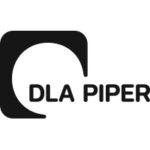-
What are the national authorities for banking regulation, supervision and resolution in your jurisdiction?
The authority responsible for banking supervision and regulation in Slovakia is the National Bank of Slovakia (NBS). Its key roles include price stability, management of cash circulation and payments, supervision over foreign exchange reserves, and issue of euro banknotes and coins. Additionally, it supervises the financial market and contributes to the overall stability of the financial system.
Slovakia adopted the Act No. 371/2014 Coll. on solving the critical situation on the financial market as amended (the “Resolution Act”) implementing Directive 2014/59/EU establishing a framework for the recovery and resolution of credit institutions and investment firms, as further amended by later directives. The Resolution Council was established on 1 January 2015 (composed of 4 managerial staff members of the NBS, 4 managerial staff members of the Ministry of Finance of the Slovak Republic, the Director of the Debt and Liquidity Management Agency and the Director of the State Treasury) which also acts as a national resolution authority for central counterparties as of 12 August 2022.
-
Which type of activities trigger the requirement of a banking licence?
Without a banking license or unless otherwise provided in special laws, it is not permitted to perform the following activities:
- acceptance of deposits,
- provision of interest or other remuneration on deposits which are a tax expense,
- provision of loans and credit from repayable funds obtained from the public through a public call,
- offering payment services,
- providing investment services, investment activities, and related services.
The NBS has the authority to assess whether an entity’s activities fall under the categories listed above and determine whether a banking license is required for such operations.
-
Does your regulatory regime know different licenses for different banking services?
Slovak credit institutions are named a bank or a savings bank, a construction savings bank if it offers special construction savings, or an investment bank if it can only provide investment services.
Slovak legislation establishes banking licenses, allowing banks to accept deposits, issue loans and perform other banking activities listed in the banking license.
If a bank meets specific criteria, it may be also authorized to offer investment services, engage in investment activities, and conduct the activities outlined in question 4, which may also require special authorisation. In that case, the application process for banking authorization is integrated with the application procedure for a specific authorization. The securities dealer is obliged to apply for a banking license if it meets the requirements under Art. 4 (1) point 1 lit. b) of the Regulation No. 575/2013 as amended inter alia, by Regulation 2019/876/EU (“CRR/CRR II”).
The prior consent of the NBS is required to commence activities related to the first program of covered bonds and for any other program of covered bonds separately.
To be clear, the passporting of an EU banking license does not apply to activity as a depository for retirement savings; the passporting entity has to apply for a Slovak banking license in this respect.
-
Does a banking license automatically permit certain other activities, e.g., broker dealer activities, payment services, issuance of e-money?
Banks and branches of foreign banks operating in Slovakia are automatically authorized to conduct the following activities:
- Accepting deposits,
- Providing loans.
Additionally, if these activities are specified in their banking license, they may also engage in:
- Offering investment services and investment activities,
- Providing payment services and clearing,
- Offering investment services, investment activities, and related services including proprietary trading in securities,
- Trading on their own account in:
- money market instruments in euros and foreign currencies, gold, and foreign exchange services,
- capital market instruments in euros and foreign currencies,
- precious metal coins, commemorative banknotes and coins, collector’s coins, uncut banknote sheets, and coin sets,
- Managing client receivables, including related advisory services,
- Financial leasing,
- Providing guarantees, issuing and confirming letters of credit,
- Business consulting services,
- Issuing securities, participating in their issuance, and offering related services,
- Financial intermediation,
- Safe custody services,
- Renting out safe deposit boxes,
- Providing banking information,
- Acting as a depository under special retirement savings law what is not automatically applicable to passported foreign banks or their branches,
- Processing banknotes and coins,
- Issuing electronic money, including electronic money tokens,
- Issuing asset-backed tokens,
- Offering crypto-asset services.
The last three activities may not be used by a foreign bank in its intended branch (i.e. not passported under an EU license).
Banks are not permitted to perform any other business unless the NBS has granted its consent in exceptional cases.
-
Is there a “sandbox” or “license light” for specific activities?
The NBS launched a regulatory sandbox on 1 January 2022. This sandbox allows for ongoing consultations regarding the setup of financial innovations and their actual testing in the financial market under the oversight of the NBS.
While the NBS does not specify the exact activities that can be tested in the sandbox, it has established criteria for participation, including:
- candidate’s readiness to join the regulatory sandbox and the preparedness of the financial innovation to be tested,
- identified need for testing,
- level of innovation involved,
- potential for positive impact on clients in the Slovak financial market, as well as the absence of significant negative effects on financial stability in Slovakia.
-
Are there specific restrictions with respect to the issuance or custody of crypto currencies, such as a regulatory or voluntary moratorium?
Under Slovak law, there are no particular restrictions on the issuance or custody of cryptocurrencies, except for anti-money laundering (AML) regulations. Until recently, Slovakia had not established specific regulations for cryptocurrencies and other crypto assets, aside from taxation rules.
However, some provisions of Regulation (EU) 2023/1114 of the European Parliament and of the Council of 31 May 2023 on markets in cryptoassets (“MiCA”) have been implemented in the Slovak legislation, which were necessary to harmonise the Slovak legislation with MiCA. In this context, the Act No 248/2024 Coll. on certain obligations and authorisations in the field of cryptoassets and on amending and supplementing certain acts was adopted (the “MiCA Act”). The MiCA Act appoints the NBS as the supervisory authority that supervises compliance with the obligations laid down in the MiCA, authorises issuers of asset-linked tokens and providers of crypto-asset services and imposes sanctions for breaches of the obligations arising from MiCA.
Currently, persons who lawfully provide services and activities that meet the characteristics of crypto-asset services may carry out these activities without a licence until 30 December 2025.
-
Do crypto assets qualify as deposits and, if so, are they covered by deposit insurance and/or segregation of funds?
Under Slovak law, crypto assets are not classified as deposits and are not covered by deposit insurance. They are subject to segregation requirements if held by financial institutions on behalf of clients, but these protections are not the same as deposit insurance. Crypto assets fall under EU regulations, such as MiCA, but are not considered traditional deposits.
-
If crypto assets are held by the licensed entity, what are the related capital requirements (risk weights, etc.)?
Slovak law does not impose specific capital requirements for licensed entities managing crypto-assets. Instead, the capital requirements outlined in the MiCA Regulation apply.
-
What is the general application process for bank licenses and what is the average timing?
An application for a banking license must be submitted to the NBS, which decides whether to grant a banking license or reject the application.
If the respective banking activity is also subject to special laws and license (e.g. financial intermediation), the licensing process is united and such special banking activity is included in the banking license.
Once the banking license is granted, the bank must demonstrate to the NBS that it has:
- fully paid the required capital deposit,
- the necessary technical, organizational, and personnel readiness to carry out banking activities, including a management and control system, an internal audit department, and a risk management framework,
- written contract defining the legal relationships with members of the statutory body (for foreign bank branches, this applies to the branch manager).
After meeting these conditions, the NBS will issue a written confirmation, allowing the bank to commence the banking activities specified in its license.
In terms of timing, the process will depend significantly on the parties involved. There are some statutory deadlines in this respect. The NBS must decide on the application within six months as of receipt of a complete banking license application, unless special laws stipulate a different deadline, however within 12 months at the latest. If cooperation within the European System of Financial Supervision or the Single Supervision Mechanism is necessary, the NBS will decide within 18 months as of the delivery of the application unless a different deadline is given under special laws.
-
Is mere cross-border activity permissible? If yes, what are the requirements?
Foreign banks seated in the EU or an EEA member state can operate in Slovakia directly (freedom to provide services principle) or by establishing a branch in Slovakia (freedom of establishment principle), within the limits of the authorization granted by the relevant authorities from their country of origin and subject to the passporting procedure. The establishment of a branch in Slovakia, as well as the intention to provide banking services under the freedom to provide services, must be reported to the NBS through the competent supervisory authority of the foreign bank’s home member state.
Foreign banks from a non-EU/EEA member state may establish a branch in Slovakia subject to the application for the banking license procedure.
-
What legal entities can operate as banks? What legal forms are generally used to operate as banks?
Slovak banks must be established as joint-stock companies with a minimum capital of EUR 16,600,000 and in compliance with Slovak commercial laws.
-
What are the organizational requirements for banks, including with respect to corporate governance?
As a general rule, credit institutions must organize their entire activity in accordance with the rules of a prudent and healthy banking practice, within the requirements of the law, of the CRR/CRR II and the regulations issued in the application of the aforementioned.
From the corporate law perspective, the bank must establish a board of directors and a supervisory board. Under banking law, the bank must also establish an internal control and internal audit unit to control compliance with laws and other generally binding legal regulations, the bank’s internal regulations and procedures. The appointment of the members of these bodies, the proxies, key employees directly reporting to the board members and the AML officer are subject to the prior consent of the NBS and certain professional and trustworthy requirements.
Significant banks must establish a risk management committee and a remuneration committee, composed of the members of the supervisory board. Non-significant banks can opt to appoint a person responsible for remuneration and the audit committee.
As a general rule, banks must organize their entire activity in accordance with the rules of a prudent and healthy banking practice, with the requirements of the law, of CRR/CRR II and the regulations issued in the application of the aforementioned.
The Slovak Banking Act (Act No 483/2001 Coll. on Banks as amended; the “Banking Act”) contains further requirements regarding the organisational structure to prevent from conflict of interest, ensure separation of certain functions and sufficient control, whereby the details are stipulated in the secondary legislation issued by the NBS.
-
Do any restrictions on remuneration policies apply?
Requirements for remuneration policies and practice of Slovak banks are stipulated in detail in Sections 23a to 23e of the Banking Act, implementing the Capital Requirements Directives (“CRD”).
In general, banks are asked to adopt remuneration policies that apply to (a) the members of board of directors, (b) the members of the supervisory board, (c) key employees, (d) other employees with certain management and controlling functions, (e) employees earning EUR 500,000 or more per year and equal or higher than average salary of persons listed under (a) to (c), or working in a special department established under the EU Regulation No. 1093/2010, or (f) other employees whose professional activities influence the risk profile of the bank, as determined by the EU Regulation No. 1093/2010.
The internal audit and internal control department is to control these remuneration policies at once a year.
The supervisory board supervises the compliance with the remuneration policies – the bank is obliged to submit the report on the compliance to the NBS by 30 June of the following year.
-
Has your jurisdiction implemented the Basel III framework with respect to regulatory capital? Are there any major deviations, e.g., with respect to certain categories of banks?
The EU implemented the Basel III framework regarding regulatory capital via CRR/CRR II and CRD IV. The CRR/CRR II is directly applicable in Slovakia, and CRD IV and its amendment under CRD V were implemented in the Banking Act.
As stated above, Slovak banks must have a registered capital of at least EUR 16,600,000.
-
Are there any requirements with respect to the leverage ratio?
As of 28 June 2021, a 3% leverage ratio requirement became binding on all EU banks under the CRR/CRR II.
-
What liquidity requirements apply? Has your jurisdiction implemented the Basel III liquidity requirements, including regarding LCR and NSFR?
Similar to the above, the liquidity requirements are regulated under the CRR/CRR II including the Delegated Regulation 2015/61 to supplement CRR II regarding liquidity coverage requirement for Credit Institutions which are directly applicable to Slovak banks. Thereunder, credit institutions are obliged to maintain:
- a liquidity coverage ratio (LCR) of at least 100%, equal to the ratio of the liquidity buffer to net liquidity outflows over a 30-calendar day stress period; and
- a net stable funding ratio (NSFR) at a minimum level of 100 %, indicating that an institution holds sufficient stable funding to meet its funding needs over a one-year horizon under both normal and stressed conditions.
-
Which different sources of funding exist in your jurisdiction for banks from the national bank or central bank?
The Resolution Act regulates the manner of financing the solution of the critical situation of the respective institution without providing:
- extraordinary public financial support – i.e. state aid under special laws or similar public financial support at supranational level, with an aim for the stability, liquidity or solvency of the respective institution or its group except for the funds from the national resolution fund described below;
- short-term loan from the NBS for temporary liquidity support;
- other financial help from the NBS to remove temporary shortage of liquidity secured by non-standard guarantee, provided with extraordinary maturity or for extraordinary interest.
The Resolution Act stipulates various resolution tools such as bail-in and regulates the establishment of the national resolution fund made from the financial contributions (regular, extraordinary) of financial institutions, eventually income from interests from loans provided in accordance with the Resolution Act and other sources aimed to help financing the effective solution of critical situations on the financial market.
-
Do banks have to publish their financial statements? Is there interim reporting and, if so, in which intervals?
Slovak banks are required to submit their annual report to the public section of the Register of Financial Statements within 30 days after its approval by the general meeting.
Foreign banks operating in Slovakia must publish their annual report in Slovak on their website within 60 days after the approval.
Both Slovak banks and branches of foreign banks must prepare, in addition to the annual financial statements, interim financial statements at the end of each calendar quarter. These interim financial statements must be submitted to the NBS within 30 days after the end of the respective quarter.
-
Does consolidated supervision of a bank exist in your jurisdiction? If so, what are the consequences?
The activities of Slovak banks and branches of foreign banks are subject to supervision by the NBS. This supervision is carried out on an individual basis over each supervised entity, as well as on a consolidated basis over groups of individuals and asset pools that include supervised entities. Additionally, it includes supplementary supervision over financial conglomerates.
However, consolidated supervision does not replace supervision over the individual entities included in the consolidated group, nor does it replace the supervision of individual banks and branches of foreign banks.
-
What reporting and/or approval requirements apply to the acquisition of shareholdings in, or control of, banks?
Pursuant to the Banking Act, a prior NBS approval is required regarding a share acquisition or change of control:
- Acquisition of a qualified participation in a bank or any further increase of the qualified participation (as defined under the CRR) that would result in the share of the bank’s registered capital or voting rights reaching or exceeding 20%, 30%, or 50%, or would make the bank a subsidiary of the person acquiring such a share,
- Conversion, cross-border conversion, including mergers or cross-border mergers of another legal entity with the bank, as well as the return of the banking license or reduction of the bank’s registered capital,
- Sale of the bank’s undertaking, the branch of a foreign bank, or any part of them,
- Security to be established over the bank´s shares, unless the minority shareholding below 5% share of the registered capital is concerned.
There are also other situations subject to the prior approval by the NBS, such as the changes in the corporate bodies of the bank.
Otherwise, such legal act (transaction) would be invalid.
-
Does your regulatory regime impose conditions for eligible owners of banks (e.g., with respect to major participations)?
Within the approval process mentioned above, the NBS also examines the competence and suitability of acquirers who are to become shareholders with a qualified participation in the bank, the transparency of financial sources and their sufficiency, transparency of the group and the relationships which may not prevent from the supervision by the NBS, all to ensure that the acquisition will not negative affect the bank´s ability to comply with its legal obligations.
This ensures that only suitable shareholders are involved in the banking sector, helping to maintain its stability and smooth operation. The details of the information requirements and documents to be submitted to the NBS within the approval proceeding are stipulated in the secondary legislation issued by the NBS.
-
Are there specific restrictions on foreign shareholdings in banks?
No, the same conditions apply to both domestic and foreign shareholders.
-
Is there a special regime for domestic and/or globally systemically important banks?
The NBS identifies global systemically important banks (G-SII) on a consolidated basis based on certain criteria and an overall result calculated according to these criteria. These criteria are equally weighted and consist of the following quantifiable indicators:
- size of the group,
- interconnection of the group with the financial system,
- substitutability of the banking activities provided by the group,
- complexity of the group,
- cross-border activities of the group, including activities between EU member states and between an EU member state and a non-member state.
To determine a locally systemically important bank (O-SII), the bank must meet at least one of the following categories:
- size,
- importance for the economy of the European Union as a whole or the economy of Slovakia,
- significance of cross-border activities,
- interconnection of the bank or group with the financial system.
Based on its latest assessment, the NBS has determined five systemically important banks with additional capital (buffer) for 2025, ranging between 0.25% and 2% of the risk exposure, as calculated pursuant to CRR.
-
What are the sanctions the regulator(s) can order in the case of a violation of banking regulations?
The NBS has a comprehensive set of instruments and fines at its disposal to address violations of banking regulations depending on the seriousness, extent, length, consequences and nature of the violation.
These instruments and fines include:
- warnings,
- measures to cure the respective violation (e.g. the health of the bank, additional reporting obligations, publication obligations, etc.),
- administrative fines (up to EUR 332,000 or up to 10% of the total net turnover in the preceding financial year in the case of repeated or serious violation),
- administrative fines on individuals (up to EUR 5,000,000 in serious cases), obligation to dismiss such individuals from their functions, and a potential prohibition on such persons to temporarily hold any function in a bank,
- temporary suspension of participation and the voting rights attached to shares held by the shareholders responsible for the breaches of the prior approval procedure or providing untrue information or to a person whose activities are detrimental to the proper and prudent operation of a bank – the NBS can initiate the invalidity of the respective decision of the shareholders’ meeting in that respect,
- restriction or suspension of certain banking activities or certain kinds of business,
- license suspension or revocation for certain banking activities,
- license withdrawal,
- implementation of receivership over a Slovak bank or a branch.
The NBS’s enforcement actions are designed to ensure compliance, maintain financial stability, and protect consumers. The NBS can impose various instruments and fines in parallel to each other and even repeatedly. The information about the imposed instruments and fines is published at the website of the NBS after the decision of the NBS cannot be appealed any further (some details might not be disclosed for various reasons). The information is also sent to the Resolution Council.
-
What is the resolution regime for banks?
As already mentioned, the Resolution Council is the national resolution authority. After the NBS adopts a decision on measures to prevent from critical situation, the Resolution Council is entitled to impose an obligation to a bank to commence negotiations with potential acquirers of a bank or its part to reflect the provisions of the Resolution Act.
If the conditions under the Resolution Act are met, the Resolution Council can commence the resolution proceeding on its own or based on a motion from the NBS. The resolution proceeding generally hinders the bank’s receivership, insolvency or other proceedings, and certain mandatory obligations under special laws do not apply.
Within the resolution proceeding, the Resolution Council prepares the resolution plan of a bank including the resolution measures and supervises its update at least once year as applicable, assesses the resolvability of a bank and removes obstacles to the implementation of resolution measures, cooperates with other authorities and performs other tasks under the Resolution Act.
-
How are client’s assets and cash deposits protected?
Act No. 118/1996 Coll. on deposit protection as amended implements Directive 2014/49/EU on Deposit Guarantee Schemes as amended, regulates the protection of deposits including the notarial deposits and position, functions and operations of the Deposit Protection Fund, a legal entity that forms an institutional part of the statutory deposit protection system in the Slovak Republic. The fund is not a state-owned fund, but it is financed from contributions by banks domiciled in Slovakia which are obliged to contribute from the date of receipt of the first legally protected deposit. Branches of Slovak banks operating abroad have deposits protected by the Slovak deposit protection system. Branches of foreign banks operating in Slovakia, which enjoy the benefits of a single banking license under European Union law, have deposits protected by the home deposit protection system in the country where the foreign bank has its registered office.
The main task of the fund is the protection of deposits held by individuals and legal entities in banks participating in the Slovak deposit protection system and the disbursement of compensation for claims resulting from inaccessible legally protected deposits in the event that a bank becomes unable to pay out deposits to deposit holders, up to EUR 100,000 per customer and bank.
Another state instrument to protect clients’ assets is the Investment Guarantee Fund. Similar to the Deposit Protection Fund, the Investment Guarantee Fund collects mandatory financial contributions of stock brokerage firms, branches of foreign stock brokerage firms, asset management companies, and branches of foreign asset management companies. The fund provides compensation for protected client assets up to EUR 50,000 of the client assets on the date when the client assets become unavailable to the person involved in client protection providing an investment service.
-
Does your jurisdiction know a bail-in tool in bank resolution and which liabilities are covered? Does it apply in situations of a mere liquidity crisis (breach of LCR etc.)?
As already mentioned, a bail-in tool has been implemented in the Resolution Act allowing an institution on the verge of insolvency to be recapitalised without using taxpayers’ money. Failing institutions will not be bailed out with public funds, but instead their losses will be absorbed first by shareholders and, at a later stage, by unsecured creditors (including bondholders), whose claims will be written down or converted into equity (possibly resulting in a change in control). In this way, it is possible to prevent the institution (or its part) from being wound down and to safeguard its operation and the assets of its clients.
In principle, all liabilities of an institution with few exceptions are eligible for bail-in. The most important examples for exceptions to the scope of application of the bail-in are protected deposits, secured liabilities and liabilities against employees, tax, social security and health insurance authorities and the Deposit Protection Fund.
The resolution proceeding is commenced if the resolution proceeding is justified by reasons of public interest, it is necessary for the fulfilment of at least one of the goals under Section 1 (2) of the Resolution Act, and solution of insolvency or impeding insolvency in insolvency proceeding or liquidation would not lead to the fulfilment of that goal in at least comparable extent. A mere liquidity crisis would not yet constitute a failure.
-
Is there a requirement for banks to hold gone concern capital (“TLAC”)? Does the regime differentiate between different types of banks?
The requirement for total loss-absorbing capacity (TLAC) have been introduced under the EU legislation (CRR/CRR II together with related directives and implementing regulations of the European Commission) including the calculation thereof.
These provisions lay down uniform rules concerning the own funds and eligible liabilities requirements that resolution entities that are G-SIIs or part of G-SIIs and material subsidiaries of non-EU G-SIIs have to comply with. The minimum required TLAC is 18% of risk-weighted assets and 6.75% of total exposure for EU G-SIIs, whereby institutions that are material subsidiaries of non-EU G-SIIs and that are not resolution entities have to satisfy requirements for own funds and eligible liabilities equal to 90 % of the requirements for own funds and eligible liabilities laid down for EU G-SIIs.
-
Is there a special liability or responsibility regime for managers of a bank (e.g. a "senior managers regime")?
As already mentioned above, the Banking Act already contains the possibility of an administrative fine being imposed to a senior manager including the dismissal and temporary prohibition of a function in a bank.
The new EU Capital Requirements Directive (2024/1619; CRD VI) has been adopted on 31 May 2024 introducing, inter alia, a revised framework for assessing the suitability and requirements for members of the management body and other senior managers of banks, which will also impact the EU rules on bank governance. The directive is to be implemented by 10 January 2026 into national law, being applicable from 11 January 2026, or potentially 11 January 2027.
-
In your view, what are the recent trends in bank regulation in your jurisdiction?
Slovak banking regulation closely follows the regulations adopted at the EU-level as well as the recommendations of the European Banking Authority, such as the regulation of crypto-assets, ESG reporting, digitalisation and instant payments.
From the local perspective, Slovak banks face the re-introduction of the banking levy, which will decrease the profitability of Slovak banks, and the introduction of a financial transaction tax (FTT) that will bring further workload and responsibility for due collection on banks.
-
What do you believe to be the biggest threat to the success of the financial sector in your jurisdiction?
The uncertainty of the local legislative environment (banking levy, financial transaction tax), further consolidation measures announced by the Slovak government and their impact on the business and public represent currently the biggest threat to the success of the financial sector from the local view.
In addition, the financial sector faces further global challenges resulting from interest rates, inflation risks, decreasing economic prospects due to various geopolitical conflicts, energy prices, and new tariffs, which will further test the health and resilience of all business sectors including the financial sector.
Slovakia: Banking & Finance
This country-specific Q&A provides an overview of Banking & Finance laws and regulations applicable in Slovakia.
-
What are the national authorities for banking regulation, supervision and resolution in your jurisdiction?
-
Which type of activities trigger the requirement of a banking licence?
-
Does your regulatory regime know different licenses for different banking services?
-
Does a banking license automatically permit certain other activities, e.g., broker dealer activities, payment services, issuance of e-money?
-
Is there a “sandbox” or “license light” for specific activities?
-
Are there specific restrictions with respect to the issuance or custody of crypto currencies, such as a regulatory or voluntary moratorium?
-
Do crypto assets qualify as deposits and, if so, are they covered by deposit insurance and/or segregation of funds?
-
If crypto assets are held by the licensed entity, what are the related capital requirements (risk weights, etc.)?
-
What is the general application process for bank licenses and what is the average timing?
-
Is mere cross-border activity permissible? If yes, what are the requirements?
-
What legal entities can operate as banks? What legal forms are generally used to operate as banks?
-
What are the organizational requirements for banks, including with respect to corporate governance?
-
Do any restrictions on remuneration policies apply?
-
Has your jurisdiction implemented the Basel III framework with respect to regulatory capital? Are there any major deviations, e.g., with respect to certain categories of banks?
-
Are there any requirements with respect to the leverage ratio?
-
What liquidity requirements apply? Has your jurisdiction implemented the Basel III liquidity requirements, including regarding LCR and NSFR?
-
Which different sources of funding exist in your jurisdiction for banks from the national bank or central bank?
-
Do banks have to publish their financial statements? Is there interim reporting and, if so, in which intervals?
-
Does consolidated supervision of a bank exist in your jurisdiction? If so, what are the consequences?
-
What reporting and/or approval requirements apply to the acquisition of shareholdings in, or control of, banks?
-
Does your regulatory regime impose conditions for eligible owners of banks (e.g., with respect to major participations)?
-
Are there specific restrictions on foreign shareholdings in banks?
-
Is there a special regime for domestic and/or globally systemically important banks?
-
What are the sanctions the regulator(s) can order in the case of a violation of banking regulations?
-
What is the resolution regime for banks?
-
How are client’s assets and cash deposits protected?
-
Does your jurisdiction know a bail-in tool in bank resolution and which liabilities are covered? Does it apply in situations of a mere liquidity crisis (breach of LCR etc.)?
-
Is there a requirement for banks to hold gone concern capital (“TLAC”)? Does the regime differentiate between different types of banks?
-
Is there a special liability or responsibility regime for managers of a bank (e.g. a "senior managers regime")?
-
In your view, what are the recent trends in bank regulation in your jurisdiction?
-
What do you believe to be the biggest threat to the success of the financial sector in your jurisdiction?





















